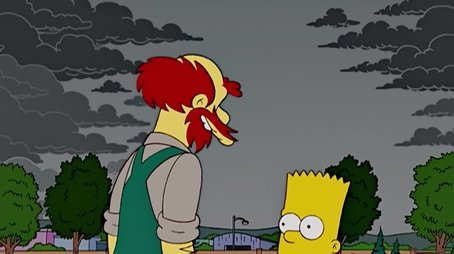
Sorry, we have not watched this yet.

Mr. Krupt is the school’s new gym teacher and introduces Bart and the kids to “BOMBARDMENT!” Bart’s attempt to get back at the new gym teacher results in the destruction of Groundskeeper Willie’s shack and the family takes him in. Lisa decides to make Willie the focus of her science fair project and tries to turn him into a “proper gentleman” with surprising results. Meanwhile, Homer has ruined his last pair of blue pants and attempts to generate interest in them so the manufacturer will start making them again.
Sorry, we have not watched this yet.